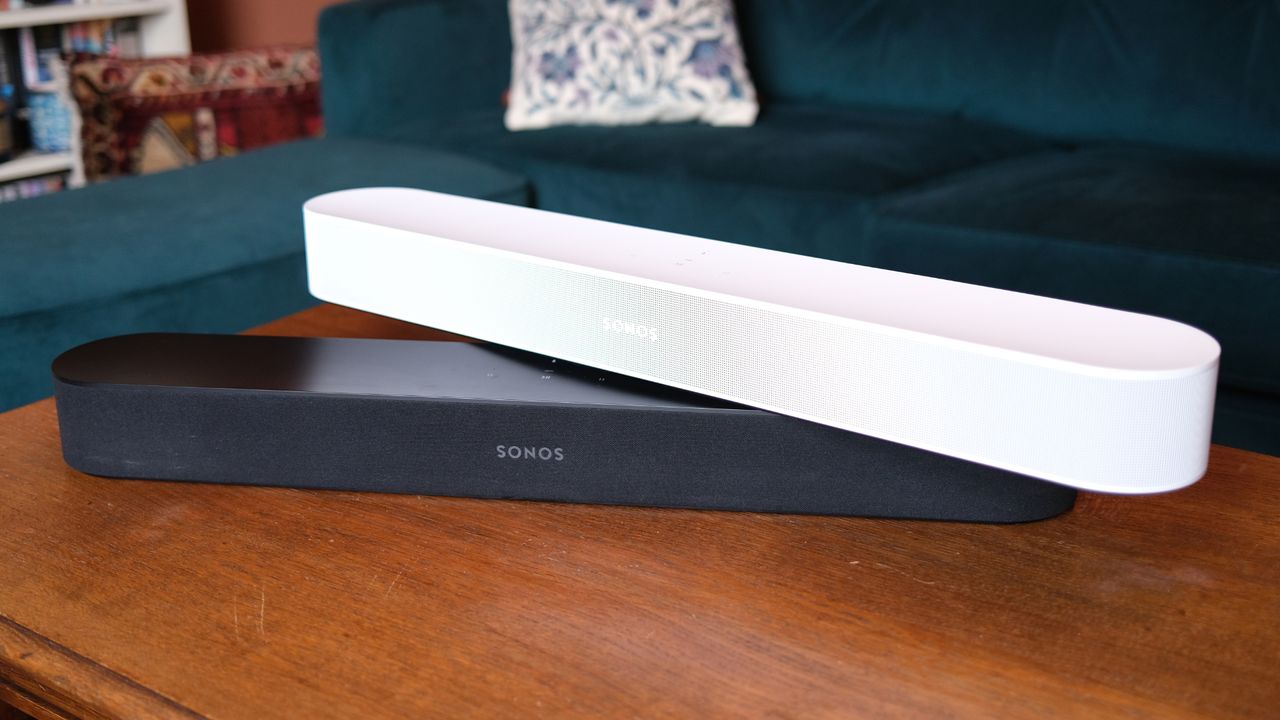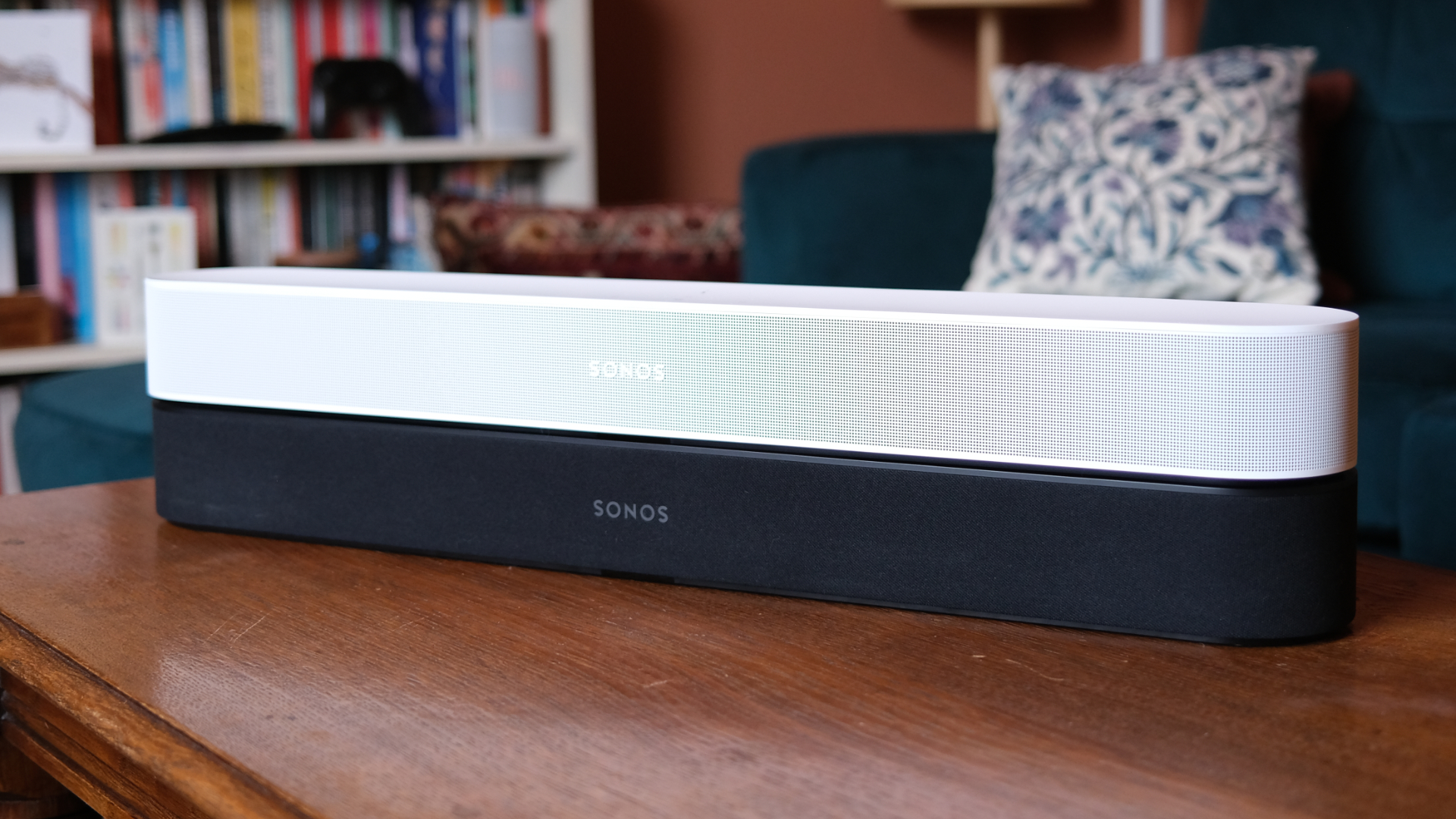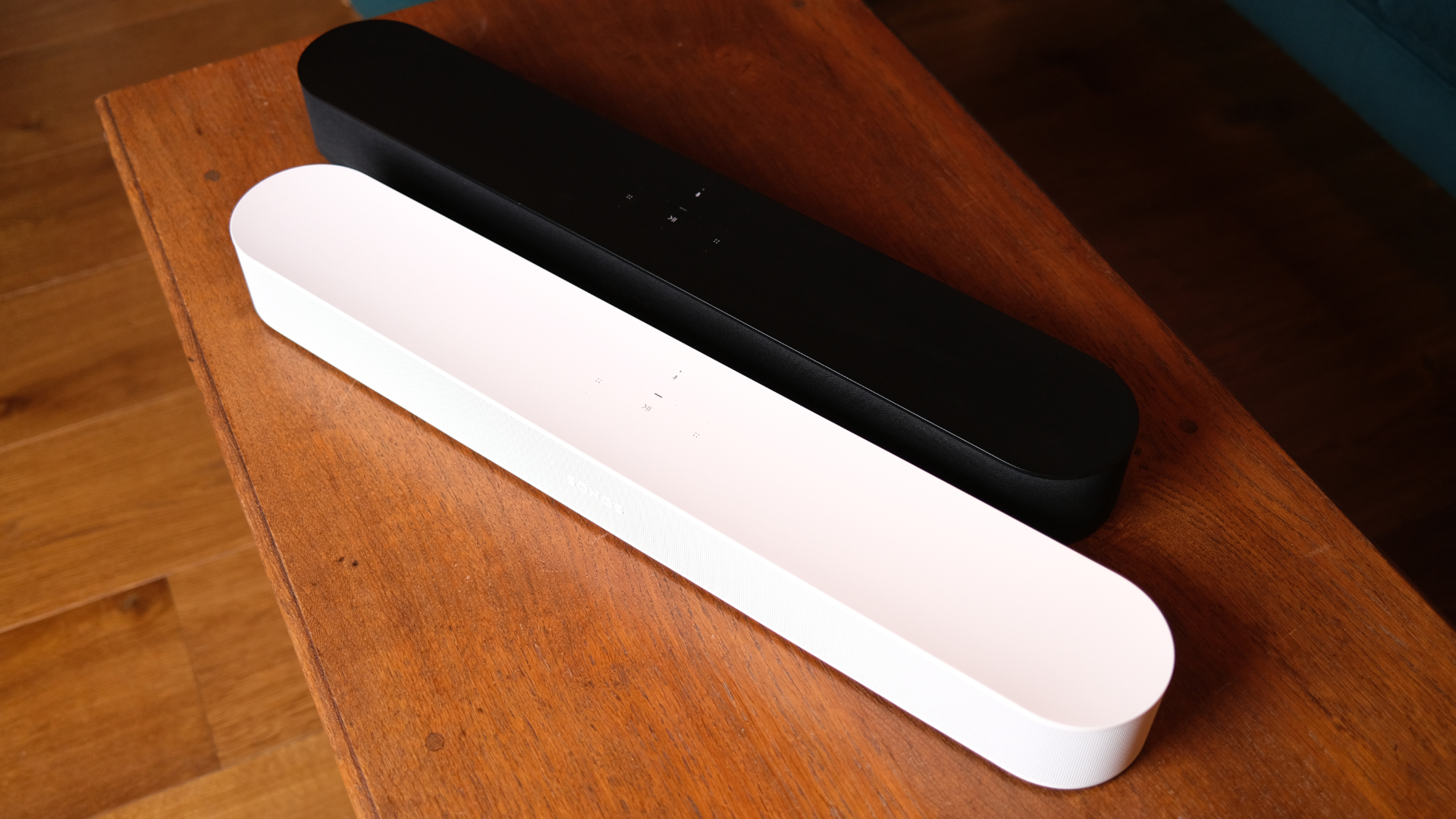
(Image credit: Future)
For the longest time, I've been a devoted Sonos Beam user – one rooted with the first-generation soundbar after I won it in a sweepstakes about 6 years ago. That was basically the best day of my life, at a time when I absolutely couldn't afford a £400 soundbar, and it's been with me through a heap of house moves and life changes.

Follow T3.com on Google News to keep our latest news, insights, and features at the top of your feeds!
Around a year after getting it, I upgraded it with the addition of two surrounds, but again did so in the most affordable way I could, using the Ikea and Sonos collaboration Symfonisk Bookshelf Speakers since they were just £99 each. It added up to a great little living room sound system, and one that I love to this day.
That said, in recent years I've been getting more into my codecs and audio standards (almost with regret), and the first-generation Beam has started to be a hindrance at times, thanks to its slightly spotty codec choices and lack of Dolby Atmos support. So, when I got the chance to upgrade to a second-generation Beam, I leapt at it, trading one of the best soundbars going for one that's even better.

(Image credit: Future)
Now I'm just a week into life with the newer Beam, and even though it's a soundbar that came out back in 2021, I can't believe how big the difference really is. For one thing, I'm no longer playing the lottery when I start up a Blu-ray disc, whether it's 4K or not – I'm getting my proper surround sound in almost every circumstance.
That's not just as a result of Atmos support, but also because the newer bar has HDMI eARC support, not just ARC – meaning it can handle a lot more audio bandwidth. I'm noticing that fuller audio, too, with richer sound quality that doesn't make my old bar sound bad, but does let me pick which one's better quite easily.
Atmos support means, in theory, far better simulated overhead audio, and that's an area where the hype doesn't quite match reality. Again, there's no doubt that I can now hear more verticality in my surround sound in appropriate scenes, compared to the Beam (Gen 1). It's not a patch on real overhead speakers, though, and you shouldn't kid yourself otherwise – but it also doesn't really matter, since you can still get a stellar overall sound stage.

(Image credit: Future)
I'm also surprisingly taken with the design changes that Sonos made for the newer Beam. The fabric grille on the older version was nice, of course, but with two cats in my household, it tended to be a lint and fur magnet, so losing it in favour of a simpler perforated plastic finish is welcome.
I've also opted to get the new version in white, along with some other Sonos bits and pieces I'll be discussing in subsequent pieces, and not just to tell it apart. I think there's something really clean and modern about how the Beam looks in white, especially if you're not trying to hide it.
All of this means that I've done a 180 on my Beam opinions, to be honest. A couple of weeks ago, I'd have confidently said that I saw no reason to upgrade my Beam, and I think that's still justifiable – few people will have even noticed the codec gripes I encountered. However, the new thing is that I think anyone buying a Beam now should absolutely get the Gen 2, even if they find the first-gen Beam for a good chunk lower on a discount.
It's way more future-proof, at present, and the sound performance it delivers is a cut above its predecessor without rendering it completely obsolete. In fact, the only real hesitation I'd have is in acknowledging that there surely must be a Beam Gen 3 in the works somewhere. We're four years into the second generation now, and that can only mean an upgrade is around the corner again at some point soon. I can't wait to see what it brings, to be honest.

-
 C114 Communication Network
C114 Communication Network -
 Communication Home
Communication Home


